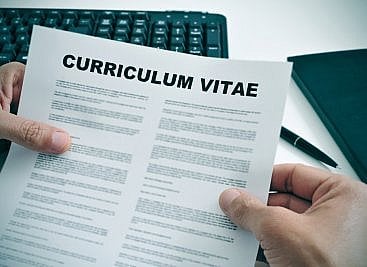In 20 years at the front line of working with talented candidates, we’ve seen quite a few howlers at Prism Executive Recruitment but some mistakes come up again and again.
Here are the 7 most common errors when applying for a job:
1. Ignoring the job criteria.
Many job applicants miss out on one or more of the ‘must-haves’. “But I have nothing to lose by applying: why should I care?” Contrary to popular belief most applications are read by real people so if you’re cheesing them off that’s not going to be advantageous if you then apply for a job you ARE qualified for. Also, you might think of yourself as pretty resilient but do you really want to receive rejection email after rejection email? If you know you have the right management consultant experience and you can meet all of the ‘essential’ and most of the ‘desirable’ criteria then you should apply. Otherwise, hold off. The wait may be worthwhile. If you really want the job but can’t say you do have all of the must-have skills, then perhaps consider getting in touch. At least this won’t annoy them and they may be understanding.
2. The CV is too long.
It should be ideally 2-3 pages, yet we receive many CVs much much longer. If you consider carefully what that might say about you, you’ll conclude it’s probably not good. See our guide to writing a great CV. Should you produce a CV that is much longer, ask for some advice before you submit it. A pair of fresh eyes may help you to find a way to cut it down. If you really want that consulting job, don’t dismiss all of these extra little steps as they could make the difference.
3. The CV doesn’t list employers and jobs, ideally in reverse order
Most CV reviewers simply want to see what you’ve done and when you’ve done it and that’s really the point of a CV. Anything else makes it difficult and means they’re more likely to move on to the next applicant. Competency-based CVs are a major turnoff. They will want to see the experience clearly without having to do their own digging around. So be specific with your consultancy experience and the person reviewing your CV may be less likely to put it in the reject pile.
4. The CV has mistakes including basic typos.
As per the above comment: “consider carefully what that might say about you”. Why would an employer want to hire you if one of the most important documents in your professional life has errors? Attention to detail is a trait that is required for so many jobs. Having typos could indicate that you are not thorough, don’t prepare or are simply careless. If the job is high-pressure and you have to juggle projects or tasks, simple typos could suggest you wouldn’t be able to cope.
4. LinkedIn is not up to date and/or not similar to the CV.
Many people don’t realise that almost invariably if your CV is of potential interest to a recruiter or employer they will look at your LinkedIn profile. It will put them off if they can’t find one, or it doesn’t tally with your CV, or it’s out of date, there’s an unprofessional photo or it has other aspects which raise a flag. Note LinkedIn shouldn’t be a replica of your CV either. This isn’t about so-called “social media snooping” but basic good sense! These days professionals are expected to look after their brand. A candidate’s brand has value to an employer as well as the individual. If you have the time think about how you use LinkedIn as well as simply listing your experience. If you are actively looking for a job or in the process of an application, consider using LinkedIn to further demonstrate your relevance or suitability for the role. They may look at your recent activity and while it wouldn’t necessarily speak against you for having nothing there, being more active could be a benefit.
5. Talking too much.
This applies to the phone or in person. We can all overdo it a bit, especially when nervous. However, being overly loquacious suggests a lack of emotional intelligence and ensures that the really good points you are making get lost.
6. Showing up late.
Does this really need any explanation? It is rare that candidates arrive late for a face to face meeting. However, it’s much more common for applicants to be on voicemail at the agreed time for a telephone interview. Some people think it matters less but it still inconveniences the interviewer to a similar degree and makes an awful impression. Possibly disrespectful and at worst poor organisational skills and/or not interested in the job. There is rarely a plausible excuse for not getting a message to the interviewer.
7. You’re unprepared.
At Prism we brief all our candidates thoroughly but we regularly get the impression that we’re raising points that weren’t on the applicant’s radar. These days all candidates are expected to be thoroughly prepared so the challenge is to stand out!
Many of the roles you will be applying for generate a large volume of responses: use these simple tips to turn the odds in your favour!


